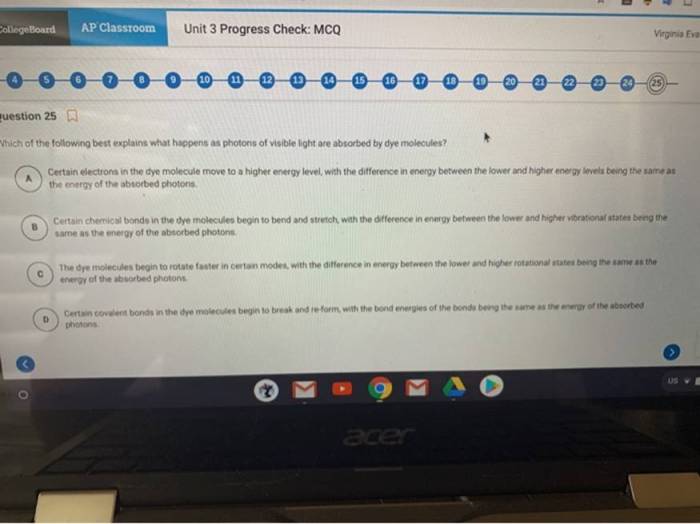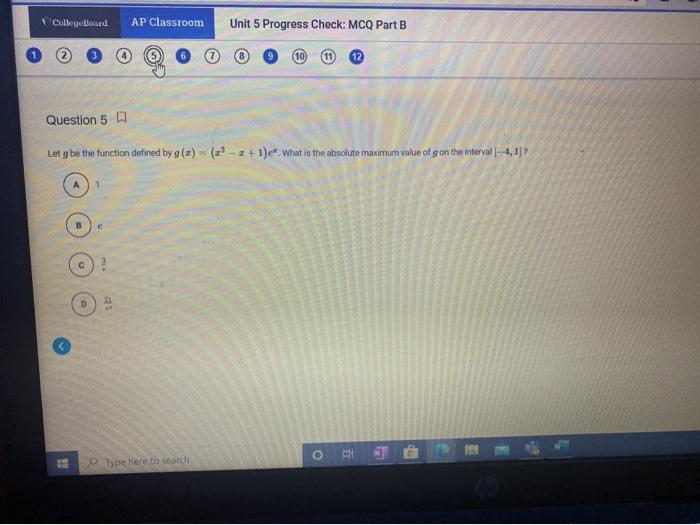Welcome to the comprehensive guide to AP Physics Unit 1 Progress Check MCQ Answers. This guide delves into the intricacies of the MCQ, providing invaluable strategies, addressing common pitfalls, and offering a roadmap for effective preparation.
Mastering the AP Physics Unit 1 Progress Check MCQ is crucial for students seeking to excel in their AP Physics journey. This guide equips you with the knowledge and techniques necessary to tackle the MCQ with confidence and achieve your academic goals.
AP Physics Unit 1 Progress Check MCQ Overview

The AP Physics Unit 1 Progress Check MCQ is a valuable tool for students to assess their understanding of the core concepts covered in the first unit of the AP Physics course. The MCQ provides students with an opportunity to practice applying their knowledge and skills in a timed environment, similar to the actual AP Physics exam.
The MCQ consists of 30 multiple-choice questions that cover a range of topics from kinematics, dynamics, and energy. Students have 45 minutes to complete the MCQ, which is designed to challenge their critical thinking and problem-solving abilities.
Strategies for Answering AP Physics Unit 1 Progress Check MCQ

To effectively approach the AP Physics Unit 1 Progress Check MCQ, students should employ a strategic approach that involves:
- Time management: Allocate time wisely, spending no more than 1.5 minutes on each question.
- Understanding concepts and formulas: Ensure a thorough understanding of the underlying physics concepts and formulas to identify the correct answers efficiently.
- Eliminating incorrect answers: Critically analyze each answer choice and eliminate those that are clearly incorrect based on the given information.
- Guessing intelligently: If unsure of the correct answer, make an educated guess by considering the most likely options.
Common Mistakes and Misconceptions in AP Physics Unit 1 Progress Check MCQ

Students may encounter common mistakes and misconceptions when answering the AP Physics Unit 1 Progress Check MCQ, including:
- Misinterpreting the question: Carefully read and understand the question before attempting to answer it.
- Applying incorrect formulas: Ensure the correct formula is used for the given scenario.
- Making unit conversion errors: Pay attention to the units of measurement and convert them appropriately when necessary.
- Neglecting significant figures: Consider the number of significant figures in the given values and report the answer with the correct number of significant figures.
Practice and Preparation for AP Physics Unit 1 Progress Check MCQ

To prepare for the AP Physics Unit 1 Progress Check MCQ, students should engage in regular practice and preparation:
- Practice tests: Take practice tests to familiarize yourself with the format and difficulty level of the MCQ.
- Review past MCQs: Analyze past MCQs to identify common question types and areas where you need improvement.
- Study materials: Utilize textbooks, online resources, and study guides to reinforce your understanding of the concepts.
- Personalized study plan: Create a study plan that caters to your strengths and weaknesses, focusing on areas that require additional attention.
FAQ: Ap Physics Unit 1 Progress Check Mcq Answers
What is the purpose of the AP Physics Unit 1 Progress Check MCQ?
The MCQ serves as a diagnostic tool to assess students’ understanding of key concepts covered in Unit 1 of AP Physics, including kinematics, dynamics, and energy.
How many questions are on the AP Physics Unit 1 Progress Check MCQ?
The number of questions on the MCQ may vary depending on the specific exam format. However, it typically consists of around 30-40 multiple-choice questions.
What are some common mistakes students make when answering the AP Physics Unit 1 Progress Check MCQ?
Common mistakes include misinterpreting question stems, applying incorrect formulas, and overlooking important details in the question.